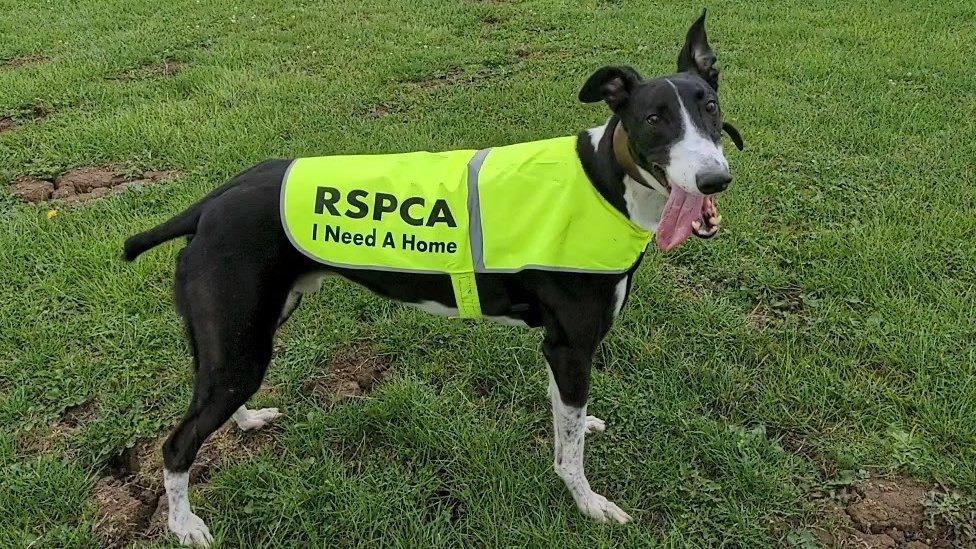Alarming rise in abandoned pets sparks 'crisis point'
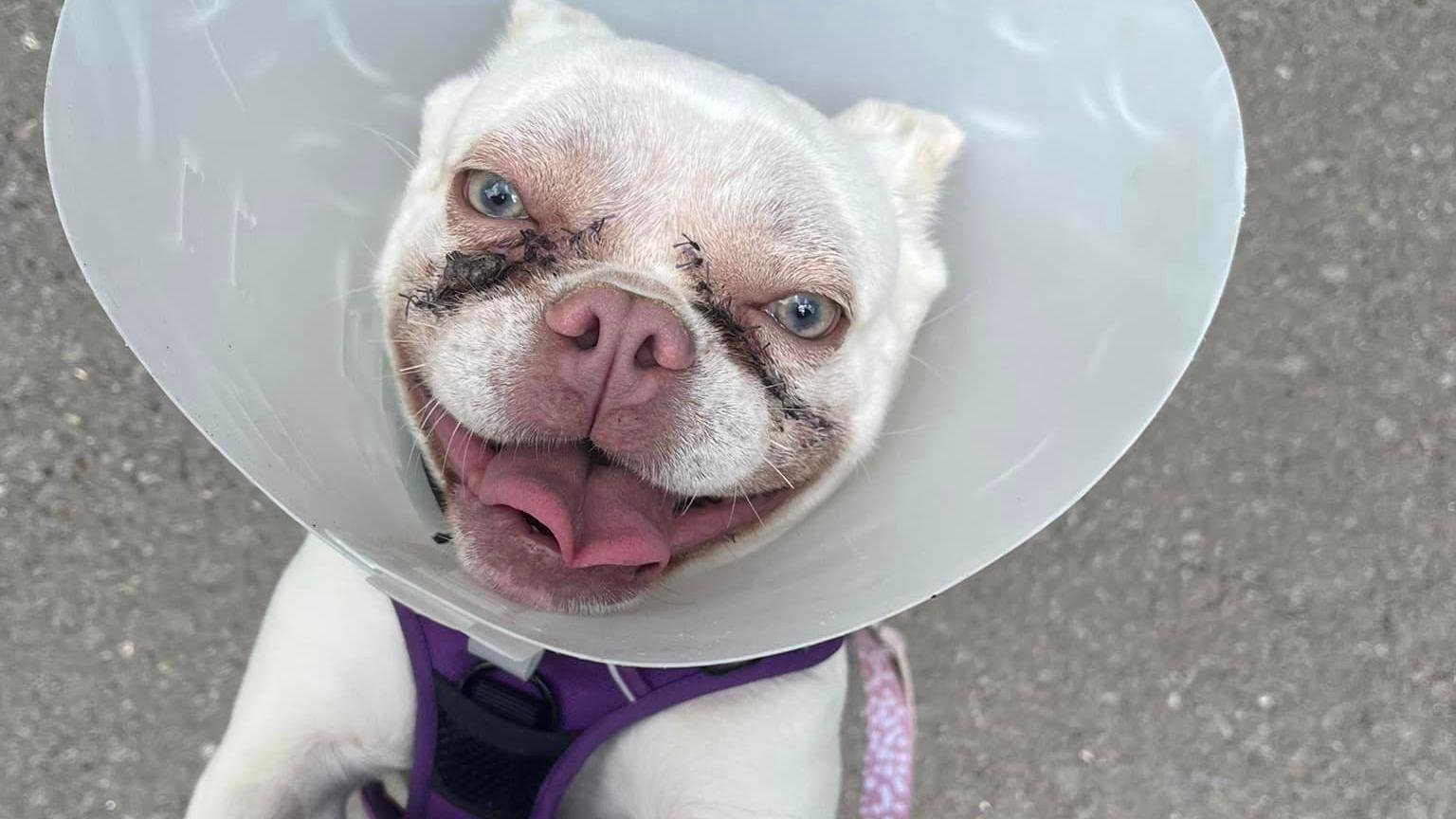
Many dogs are surrendered to rescue centres due to expensive vet bills
- Published
Animal rescue centres have hit "crisis point" amid an alarming rise in abandoned pets in "desperate need of care", charity bosses have said.
In the aftermath of a global pandemic and the midst of a cost of living crisis, more pets are being deserted than ever before.
Many animal centres across the west of England have warned that they are struggling to stay afloat, due to a manifold of increasing costs.
"Unsociable pandemic pups with behavioural problems" have resulted in one shelter refurbishing new accommodation, as lots of these animals are not being adopted.
Rescue centres are now pleading with owners to research responsibly before buying a pet, and to seek early treatment to prevent chronic illnesses escalating.
Bristol Animal Rescue Centre (ARC) has taken in almost 380 animals since January, and bosses say they have reached "crisis point".
The shelter have been caring for Bristol's pets and wildlife since 1887, making it the city's largest and longest-standing animal charity.
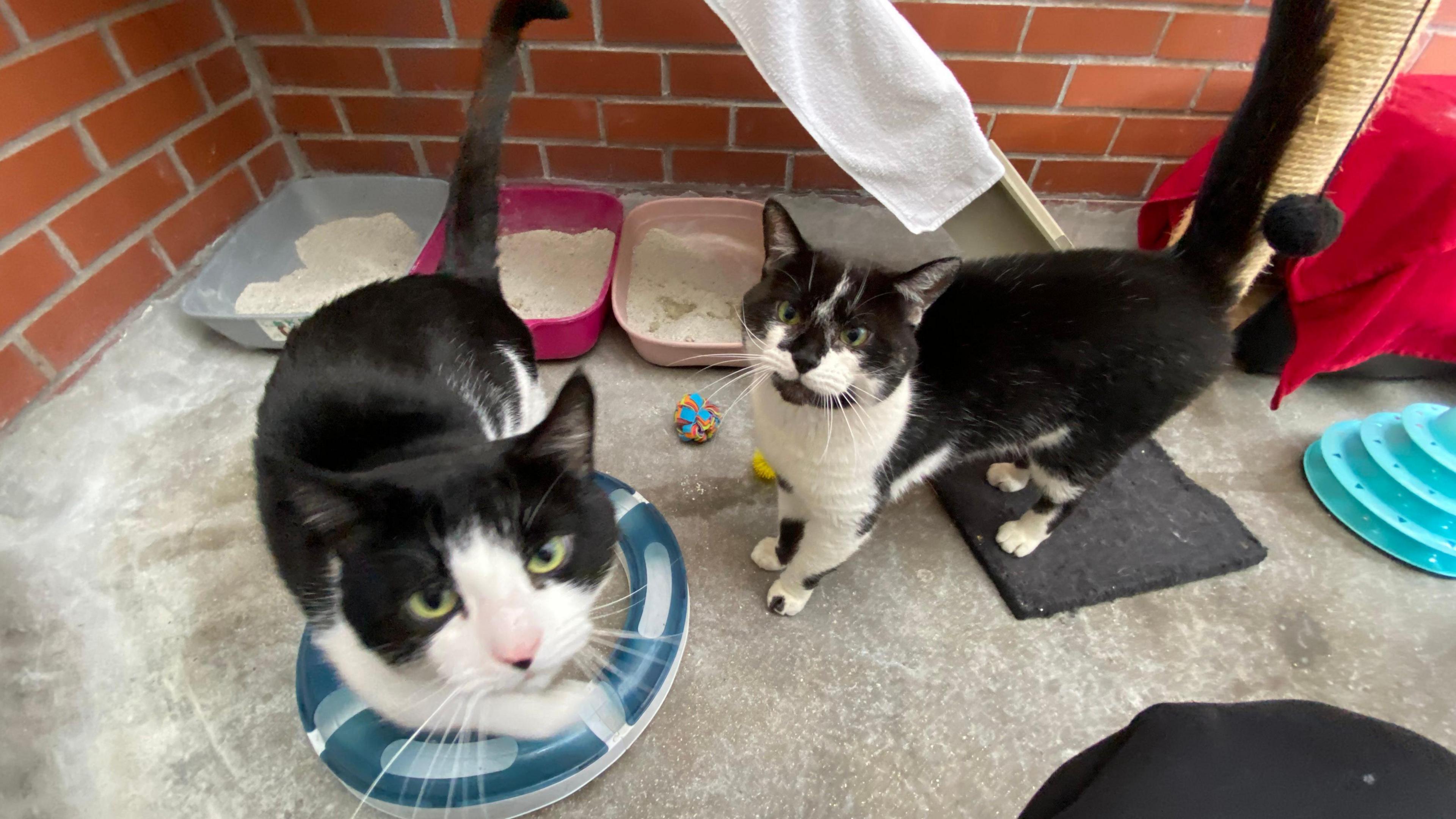
Penguin and Puffin were found abandoned in a cardboard box in Hengrove Woods
However, they say the pressure on their resources has never been more taxing, with a 24% increase in animal uptake since last year, when about 300 pets were abandoned.
“The need for support has never been greater.
"We are facing unprecedented challenges, as more and more animals arrive at our doors in desperate need of care," said Rosie El-Tibi, head of fundraising.
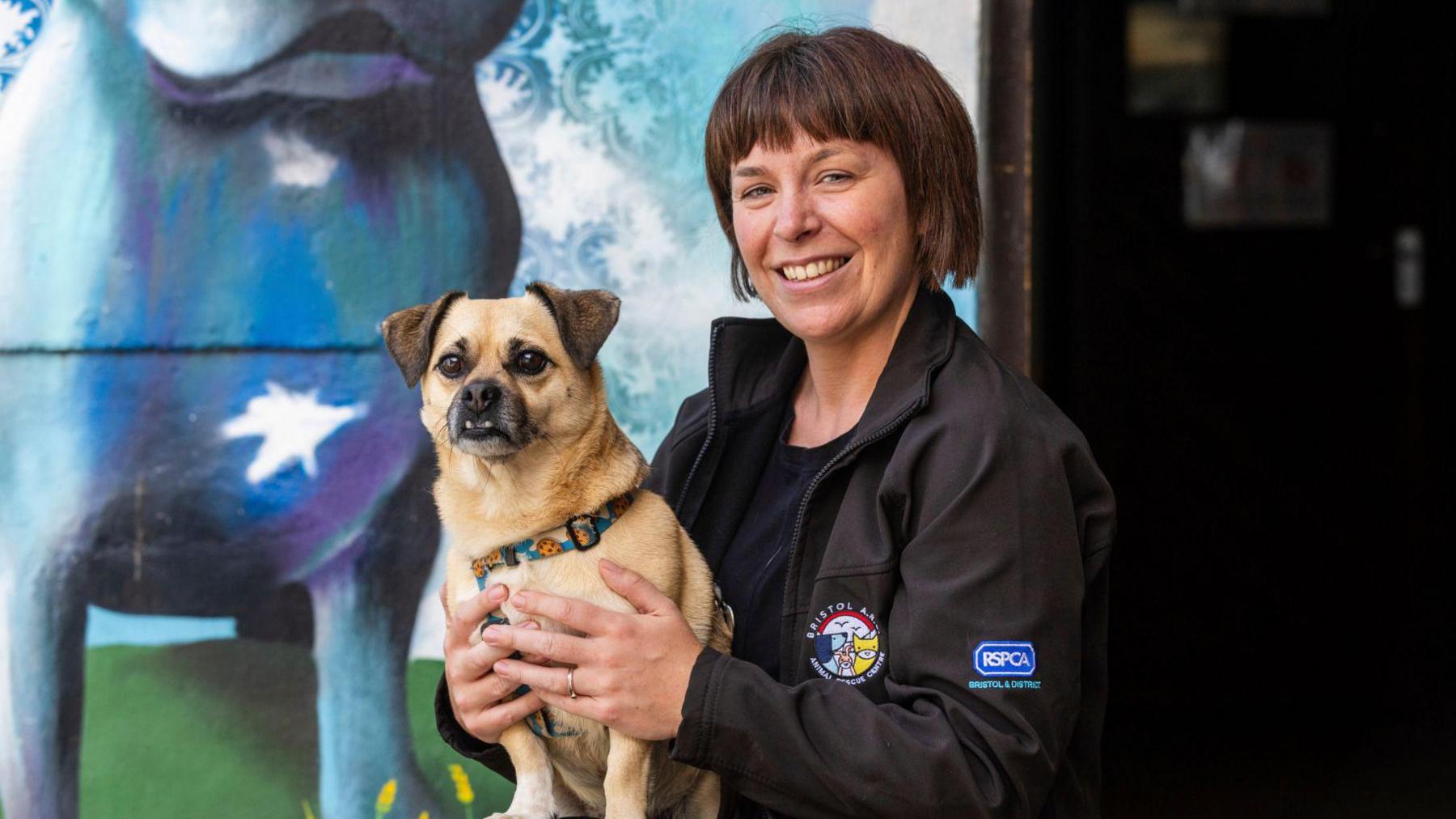
Ms El-Tibi says donations from the community act as a "lifeline" for the animals
The centre has seen a "huge increase" in uptake of animals with complex medical needs, she added.
This year, 10 French Bulldogs have been abandoned compared to two during the same period in 2023.
These animals have required several surgeries including palate, facial fold, nares (enlarging nostrils) and knee caps.
"The extensive health and vet care required can be extremely costly, leading to them being abandoned because people are unable to afford the vet fees," Ms El-Tibi added.
Although Bristol ARC is affiliated with the RSPCA, it is a self-funded branch which relies entirely on donations.

Phil Hobbins-White runs marathons to fundraise for the rescue centre
Phil Hobbins-White, who has two rescue dogs of his own, is running a marathon for every month of the year to raise money for the centre and support the animals.
He has just completed his seventh marathon in 2024, and said: "Every marathon I run, and every pound I raise, feels quite personal and hopefully goes towards giving animals a better chance in life."
Elsewhere in Somerset, Bath Cats and Dogs Home (BCDH) has also seen an influx of animals requiring emergency treatment or surgery upon arrival.
"By the time those animals come to us the problems have become more chronic.
"We have to put those dogs back together- medically, emotionally and behaviourally- and that takes time," said head of animal operations Julie Stone.
BCDH have taken in 513 animals in total since January, and on average take in one stray animal per day.
Their veterinary team conducted more than 300 operations and 2,000 medical consultations between August 2023 and August 2024.

Ms Stone says early medical intervention can save "a lot of money and suffering in the long run"
Ms Stone added that the Covid pandemic drastically "changed the landscape of rescue", with impulsive purchases leading to a surge in unsocialised 'pandemic pups' with behavioural issues, making adoption more difficult.
To cope with the crisis, the shelter are refurbishing an existing building on site to provide extra accommodation, surgical theatres, adoption rooms and recovery suites.
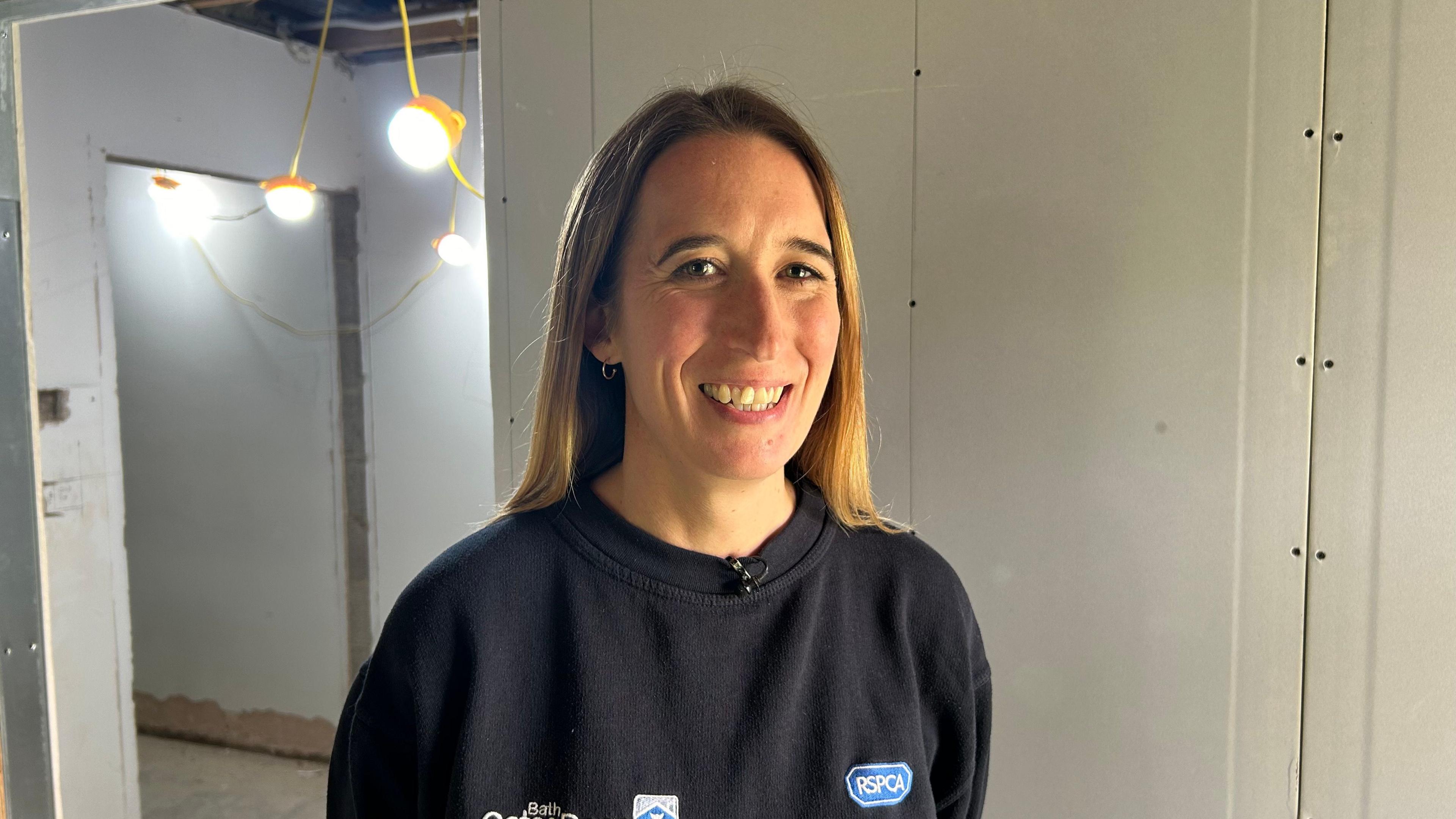
Rachel Jones said animal rescue centres are "non-judgemental" and just want to help
To reduce pressure on services, the rescue centre also offers support to help keep pets with their families, including paying for vet care and donating food.
"If people love their pets and want to provide for them, we'll do all we can to help you keep them," said CEO Rachel Jones.
"Please don't get to the point where you feel you have to abandon them. If you do reach that point, get in touch with us.
"It's much better if we know about a pet's history and the kind of environment they've come from, so we can provide medical treatment quickly or match them up with a good home," she added.

The new accommodation will enable the centre to provide better care for surrendered animals
Also offering a hardship fund for cash-strapped owners is Cheltenham Animal Shelter, in Gloucestershire.
Last year, they saved 69 pets from neglect by financing their medical treatment.
However, their annual running costs exceed £1m and are on the rise, taking in more animals than ever before and struggling to find them a "forever home".
Energy costs are projected to be £52,000 in 2024, which is a 49% increase compared to 2023. Meanwhile, veterinary bills are projected to be about £75,000.
"This year, we have had over 560 requests to take pets into our care from members of the public, which far exceeds our capacity.
"An increase in unwanted animals, fewer people willing to adopt, rising costs and less disposable income have come together to create a challenging environment," said head of fundraising Alison Jarvis.
- Published31 August 2022
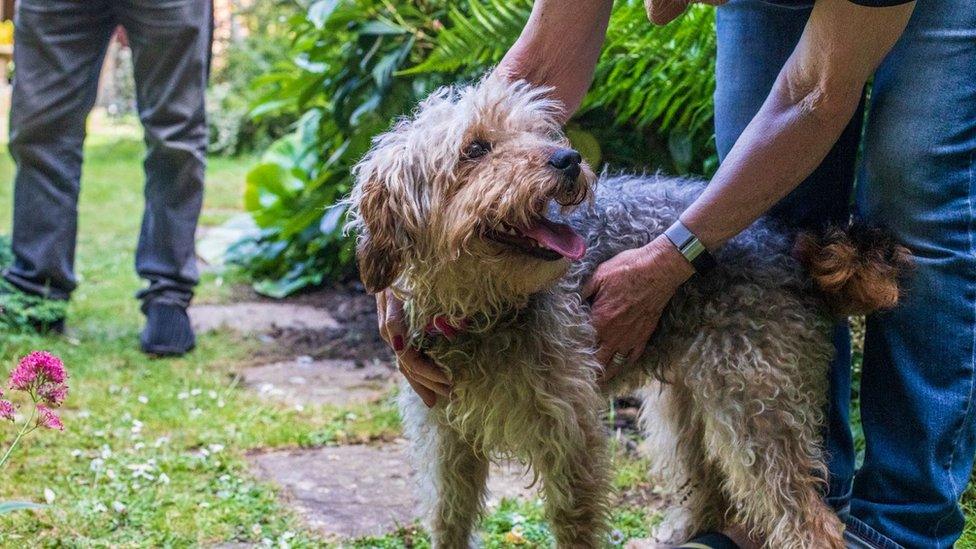
- Published27 August 2023
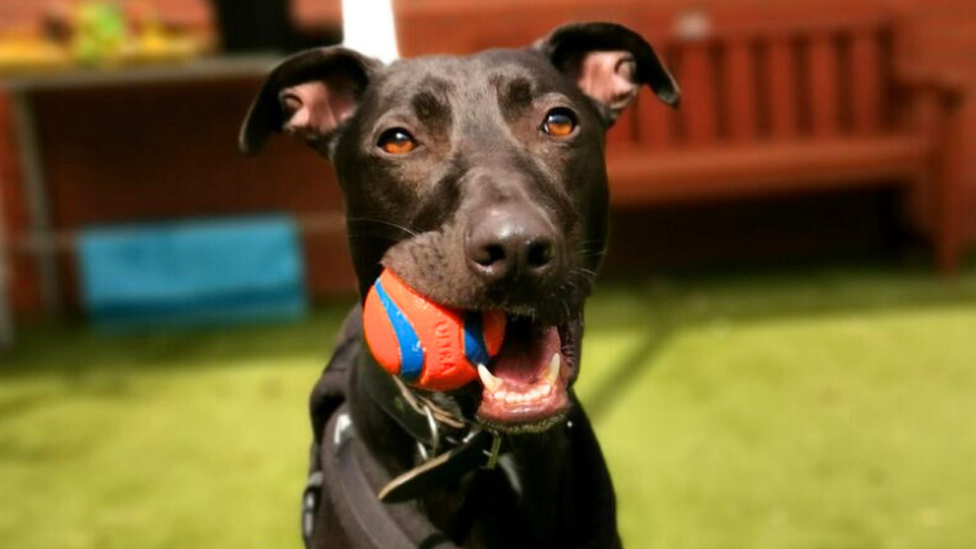
- Published24 July 2023
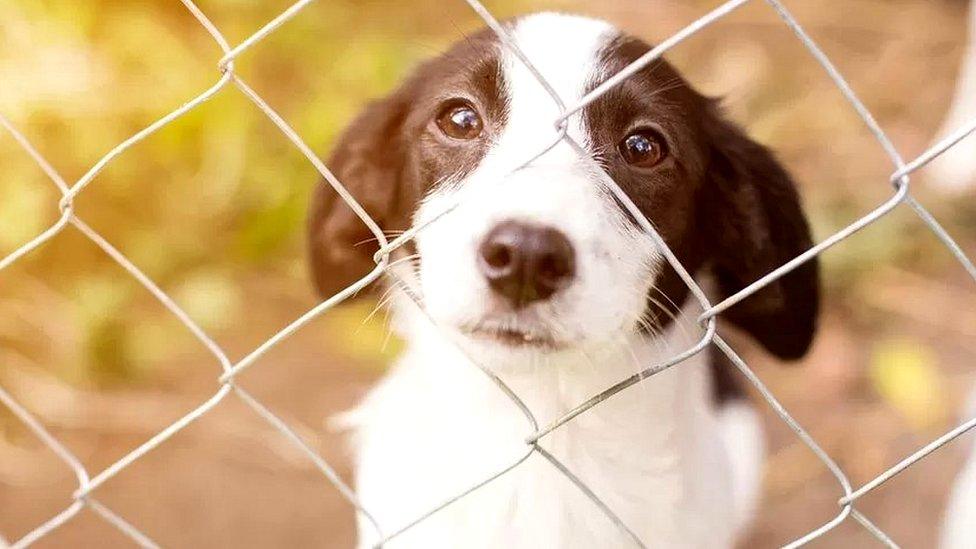
- Published4 October 2022
